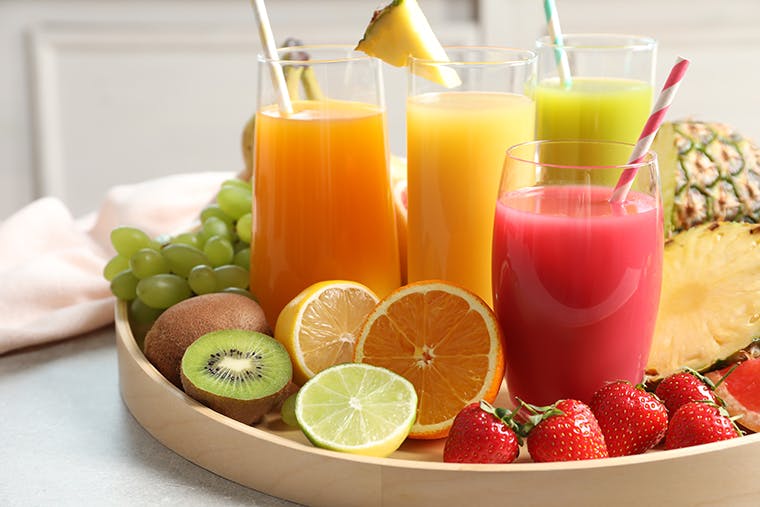Benefits of Vitamin B12 and Other B Vitamins

Vitamin B12, also known as cobalamin, is the vitamin that helps regulate some of your body’s essential functions like cell metabolism, red blood cell formation, the production of DNA, nerve function and bone formation.1 Vitamin B12 is essential for healthy nerve cell maintenance, and it helps produce our body’s genetic material, DNA and RNA.
Vitamin B12 is one of the eight B vitamins our bodies use to convert food into energy, or carbohydrates into glucose. They also help our bodies use fats and proteins. B vitamins are needed for our nervous systems to function properly, and they help keep our skin, hair, eyes and liver healthy. Vitamins B12, B6 and B9 control the amount of homocysteine in the blood. They also work together to create a compound in the body that supports our immune function and mood.2
Good Sources of Vitamin B12
Vitamin B12 is naturally present in animal products like meat, fish, chicken, dairy and eggs. Foods fortified with vitamin B12, like breakfast cereals and nutritional yeast, are also a great option for vegans and vegetarians. Supplements are also a great way to help your daily vitamin B12 intake, and the vitamin B12 found in supplements is more bioavailable, meaning easier for your body to absorb, than vitamin B12 found naturally in food.1,3
How Much Vitamin B12 Do I Need Per Day?
The Institute of Medicine measures the amount of vitamin B12 necessary for a healthy diet in terms of recommended daily allowance (RDA), the average daily intake sufficient to meet the nutrient requirements of nearly all healthy people. The recommended intake for adults and children 14 years and older need 2.4 mcg of vitamin B12 per day.3
The Benefits of Other B Vitamins
Vitamin B12 isn’t the only important B vitamin. The following B vitamins play a key role in energy metabolism and more.
Thiamin (Vitamin B1)
Vitamin B1 plays an important role in the body's metabolic cycle for generating energy. It metabolizes carbohydrates and helps your body generate energy from those nutrients. Vitamin B1 helps maintain a healthy nervous system by aiding in the development, growth and function of your cells. Foods that are rich in vitamin B1 include yeast, beans, pork, brown rice and fortified foods, such as breakfast cereals.4
Riboflavin (Vitamin B2)
Vitamin B2 is essential for breaking down carbohydrates, proteins and fats so your body can use them for energy. It also helps your body use oxygen. Vitamin B2 can be found in dairy products, fish, meat, green leafy vegetables, whole grain bread and fortified cereals.5
Niacin (Vitamin B3)
Vitamin B3 is another B vitamin that helps your body turn food into energy. It is a component of coenzymes that are involved in producing energy and larger molecules, such as fatty acids and some hormones. It maintains the health of your nervous system, digestive system and skin. Yeast, milk, meat, tortillas and cereal are all good sources of vitamin B3.6
Pyridoxine (Vitamin B6)
Vitamin B6 aids in the formation of energy-rich compounds, niacin and red blood cells. It helps your body metabolize fat and supports your immune and nervous system. It also contributes to normal brain development and hormone regulation. Sources of vitamin B6 include chicken, fish, potatoes, chickpeas, bananas and fortified cereals.7
Folate (Vitamin B9)
This vitamin is important for red blood cell formation and healthy cell development and function. Vitamin B9 works with vitamins B12 and B6 to help maintain levels of the amino acid homocysteine in the blood. This vitamin is essential during the early stages of pregnancy, and it can be found in citrus fruits, bananas, melons, strawberries, dark, leafy greens, legumes and nuts.8
Pantothenic Acid (Vitamin B5)
Vitamin B5 is an essential nutrient that helps your body breakdown carbohydrates, proteins and fats. This nutrient is found in the following foods: peas, beans (except green beans), lean meat, poultry, fish and whole-grain cereal.9
SOURCES
- Vitamin B-12. Mayo Clinic. https://www.mayoclinic.org/drugs-supplements-vitamin-b12/art-20363663. Accessed on 6/29/2021.
- Vitamin B12 (Cobalamin) Information. Mount Sinai - New York.https://www.mountsinai.org/health-library/supplement/vitamin-b12-cobalamin. Accessed 11/8/2021.
- Vitamin B12 - Health Professional Fact Sheet.https://ods.od.nih.gov/factsheets/VitaminB12-HealthProfessional/. Accessed on 6/29/2021.
- Thiamin. Mayo Clinic. https://www.mayoclinic.org/drugs-supplements-thiamin/art-20366430. Accessed on 12/15/21.
- Riboflavin (Oral Route) Side Effects. Mayo Clinic. https://www.mayoclinic.org/drugs-supplements/riboflavin-oral-route/side-effects/drg-20065810?p=1. Accessed on 12/15/21.
- Niacin. Mayo Clinic. https://www.mayoclinic.org/drugs-supplements-niacin/art-20364984. Accessed on 12/15/21.
- Vitamin B-6. Mayo Clinic.https://www.mayoclinic.org/drugs-supplements-vitamin-b6/art-20363468. Accessed on 12/15/21.
- Folate (folic acid). Mayo Clinic.https://www.mayoclinic.org/drugs-supplements-folate/art-20364625. Accessed on 12/15/21.
- Pantothenic Acid (Oral Route) Description and Brand Names. Mayo Clinic. https://www.mayoclinic.org/drugs-supplements/pantothenic-acid-oral-route/description/drg-20065349. Accessed on 12/15/21.








































